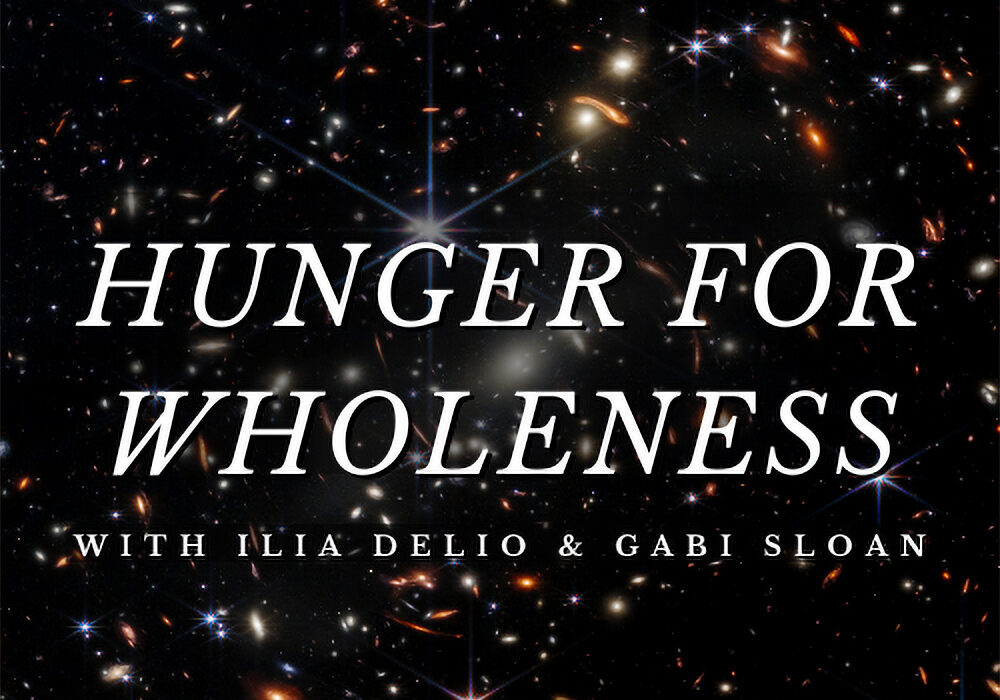Church and New Creation
Q: “I am not exactly sure as to your meaning of church. Is it as it has been in the past and still now clerical centered; or what it must be in the future, totally reorganized and lay centered; hopefully not a very long way down the road?”
 Ilia: It may be helpful to clarify the meaning of the word “church” which has nothing to do with clerics or maleness and everything to do with community and worship.The word church is related to two Greek words, ekklesia and kyriakon. The Greek word ekklesia, means “to be called-out.” An ecclesia is a group or body of individuals “called–out” for a particular purpose.
Ilia: It may be helpful to clarify the meaning of the word “church” which has nothing to do with clerics or maleness and everything to do with community and worship.The word church is related to two Greek words, ekklesia and kyriakon. The Greek word ekklesia, means “to be called-out.” An ecclesia is a group or body of individuals “called–out” for a particular purpose.
In Acts 19:23-41, verse 25 says that Demetrius “called together” a group of silversmiths. In verses 32 and 41, this group of people is referred to as an “assembly” (ecclesia). In verse 39, the town clerk told the group that the matter should be brought before a “lawful assembly.” In the above verses, the word “assembly” is translated from the Greek word ecclesia. The general meaning of ecclesia is a body of people called out for some particular purpose.
While ecclesia is related to church, it is not identical to the word “church” which comes from the Greek kuriakon or kuriakos meaning “belonging to the Lord.” The root word kurios (kyrios) means “lord or master.” One is reminded of the words of Jesus: “Why do you call me Lord, Lord and not do what I tell you?” (Lk 6:46). The public ministry of Jesus was centered around a new ecclesia, gathering into a new assembly, the people of God, for a new creation. Over time the early Christian community consolidated and institutionalized into a canonical form of worship, which we have come to know as “church.” When I use the word “church,” I am not referring to the institution itself (with a capital “C”) but to a broader concept of church (lower case “c”), an ecclesia, gathering together and being centered in the root reality of God.
Given the background of the word “church,” it might be helpful to draw out two points to address the deeper question, why go to church? The question is of interest, especially in light of a 2019 Gallup poll, which showed that church attendance has declined by more than twenty percent since 1999 and more than half of that change has occurred since the start of our present decade. The poll also notes a sharper decline in affiliation among Catholics than among Protestants. Twenty years ago, 76% of Catholics belonged to a church while today about 63% belong to a church, although the attendance rate is much lower. The number of disaffiliates (“spiritual but not religious”) continues to rise, especially since the outbreak of the sexual abuse crisis in the Catholic Church, and is prominent among the younger generations, such as Gen X and Gen Z.
Opting out of Mass or some type of assembled worship raises the question, is going to church necessary or can one simply practice the Golden Rule? Given the intransigency of the Catholic Church to ditch Greek metaphysics and catch up to the 21st century makes the Golden Rule very tempting. Sitting in church week after week listening to long-winded homilies that have little to do with the current struggles of life or being reminded that women are not allowed on the altar or that divorced or LGBTQ persons cannot receive the Eucharist does make the Golden Rule quite attractive. After all, who needs this grief? Does God really care if someone is divorced or bisexual? Shouldn’t God be more concerned about bad theology or the male control of Church? Theologically speaking, God does not care about any of these things. Attending a church service is about worshiping God and should evoke a greater consciousness of God; it is not meant to be a police station, courtroom or classroom, although it has become these things at times.
The pandemic internet church shows that there are a variety of ways to worship God and that one has options to choose which service might meet her or his spiritual needs. And while it is quite convenient to “attend” an internet church service between morning coffee and breakfast, the fact is, internet church can come close to living the Golden Rule without any demands. With internet church, I am in control of my own spiritual life (it’s my life and I have a right to do with it what I want!) I do not have to talk to anyone; if I do not like the homily I can switch off to another service and, if I am really bored, I can shut down the computer and go for a walk. So, in effect, internet church may have kyrios at the heart of the service but it lacks ecclesia, being “called out” from our normal routines and “called into” a new assembly, gathered as a worship community centered in God. As difficult as it is for me to sit through Sunday Mass at times, I want to explain why going to church at least one day a week may be the most important thing we can do in a world of globalization.
We are in the midst of a global pandemic crisis; we face the consequences of continued global warming; and it is likely we will experience the collapse of social and economic structures up ahead. How did we get here? It was not by practicing the Golden Rule; goodness is built into the fabric of our lives. Creation is endowed with goodness (cf. Gen 1:31). But we have become radically disconnected from one another and from the biosphere, which sustains us. Unfortunately, religion plays a significant role in this unraveling, placing an emphasis on other-worldliness, spirit over matter, grace over nature, heaven over hell. Our religious brains have been formed to think dualistically, while nature continues to evolve with complexity. So prima facie our gut reaction is to ditch religion; yet the paradox is that the very thing we reject, religion formalized in the notion of church, is the very thing that can save us from complete annihilation.
To go to church does not mean that one must accept everything that goes on in church; however it does mean that one desires to be part of God’s ongoing project of loving the world into the fullness of life. The Catholic Church acknowledges its own weakness and recognizes frail humanity within itself, yet, it holds out hope as an eschatological symbol, that what we anticipate is a new heaven and a new earth, as a new people of God, brought into reality by the life, death and resurrection of Jesus Christ. To say this does not exonerate the Church from the unspeakable crimes of the sexual abuse crisis. On the contrary, the frail humanity of the Church as, in society, should be subject to laws that govern the welfare of children. Pedophile priests and bishops should be tried in civil court and sent to prison, if found guilty. Going to church should not be confused with condoning pedophilia, as the history of the church is filled with horror stories. To lodge church in history alone is a fallacy of misplaced concreteness. In my view church is less about history and more about future. It exists as sign of an eschatological reality. Eschatology is about the things we hope for, the “end” things, or the things “up ahead.”
We do not go to church to be rescued from a fallen world; we go to church to become transformers of the world because we believe in a new community of life, where God is the loving vital center of activity. Church is not about enduring boring homilies for brownie points; it is about the hope which lies within us. We do not go to church for ourselves; we go to church to get out of ourselves, to be challenged by what we are by joining with others who are not related to us, praying for a new community of life together.We go to church because we are part of a larger whole, and briefly partaking in a community of unrelated persons reminds us of the whole that is our reality. Every person is a child of God; every person is loved uniquely by God and, for at least one hour each week, I am invited to get out of my isolated ego and to recognize that the God in me is the same God in you and that on the deepest levels of cosmic life, we are united as one.we are united as one. In this respect, going to church challenges our individual tendencies and invites us to a new wholeness. The key to the significance of church is in the word ecclesia.
Let’s consider the idea of being “called out.” Did you ever have the experience of being immersed in a book or watching an enthralling movie on television and someone calls you on the phone to talk or asks if you can stop what you are doing to help them? This is the general meaning behind ecclesia. To be “called out” is an interruption of our operative consciousness and spacetime activity. One has to leave the normal flow of activities to engage in something new. The flow of consciousness is disrupted because one’s spacetime coordinates have quickly shifted without planning in advance. Ecclesia is consonant with open systems, a spontaneous letting go in the present moment to engage the new. The two dimensions of our lives most affected by ecclesia are consciousness and time. We live most of our lives in chronos or sequential time but to be “called out” is to enter kairos time, an interrupted time of something new. We are jolted from our semi-conscious automated selves into a spontaneous new gathering (after all, I do not know beforehand who will be part of this gathering) by “going to church.” God breaks into our lives, as we enter into the assembly gathered to worship and pray; God is doing something new in our lives and we are invited to a new consciousness in relation to God’s dynamic life. Ecclesia challenges our highly privatized and individualistic culture to transcend the self-inflated ego for a short time each week to call to mind that we belong to a world of people and not simply to our friends and families.
A religious ecclesia is not meant to pacify, console, placate or reinforce the self-isolated ego: just the opposite. It is meant to interrupt our otherwise private lives, call us out of our self-inflated selves and into a much wider community of people we may have little in common but with whom we share the resources of planet earth. It is kairos time not chronos time. It is the invitation to be part of a new earth open to a new heaven where everyone is ultimately loved (a vital message of Pope Francis). It is an earth community (symbolized by the sacraments of bread and wine) open to the fullness of life in God, which is the hope of heaven. It is an eschatological community because God is the center of this community and the absolute future horizon of all life. Ironically, church is all about evolution because it is a live in via (although we don’t often get this notion.) Without church or ecclesia our only gatherings are sports events, golf outings or private dinners, all according to our likes and dislikes. That is, we have no demands placed on us by a gathering of unrelated people, which is why I think church gatherings should be more like dynamical systems, changing their patterns from time to time. Unfortunately church has become routinized by formal memberships and dues, becoming closed and stable, enervating the power of church to convene unrelated persons within the embrace of God’s powerful love for a new future together.
Teilhard de Chardin spoke of the Church as a new phylum, giving birth to a new type of person in evolution, the christic, who could spearhead the new creation. His idea of the Church as a new growth in evolution reflects the fact that, if we want a new world, we must become a new people. A new planet of life requires a new vision of life. If we want to be alone or exist only in the privacy of our family and friends then we will suffer the consequences of of separateness from the whole.
No doubt being with others who are not friends or family may annoy us and can be very taxing. Our first reaction might be to fight or flight (showing that we are really Darwinian by nature). Here is where the Christian sacrament of Eucharist may be powerful in transforming the isolated ego into the cosmic body of Christ. Eucharist is being entangled with the Body of Christ. It calls forth a new Christ consciousness, of seeing others in a new light, not as enemy or foe, but as fragile and weak, because I see the same fragile weakness in myself. The Christ in me recognizes the Christ in you. A Eucharistic life means loving by way of sacrifice and letting go of our precious need to isolate ourselves and control the wildness of nature. Eucharist is a sacrament of ego transformation, if we can begin to realize that “it is no longer I who live but Christ lives in me” (Gal 2: 21).
Going to church (or religious service) at least once a week challenges us to wake up from our isolated slumber and join in prayer with all who suffer the pain of life’s constant struggles; to be part of the eschatological community, and to realize that suffering and sacrifice are part of the ongoing evolution of life. God is doing new things and we are invited to share in the new creation. To resist sacrifice or ignore pain is to suppress the vitality of life and its impulse to evolve. When we are beaten down and defeated, our tendency is to give up and declare life a failure. Going to church is an invitation to get up again and awaken to a new future. God invites us to the sounds of a new beginning, a new ecclesia, not a closed assembly of friends but a disruption of sameness to envision a new a church of the planet, where all people can find dignity, acceptance and love, where the lion can lie down with the lamb, and nature is at peace.
 View print-friendly version
View print-friendly version
3 Comments
Related Posts

Hunger for Wholeness Podcast Launches!
Story matters. Our lives are shaped around immersive, powerful stories that thrive at the heart of our religious traditions, scientific inquiries, and cultural landscapes. All stories – big and small…


I am not entirely sure that you get what the Mass actually is.
The big error I see here is that you believe man is transcending through time. As time progresses he evolves becoming more perfect. This is sadly not the case, as the barbarism of the 20th century shows. Man can only transcend his flawed self through God’s grace. Well evolution gives rise to higher ordered material creatures, the soul is not subject to evolution. The soul must ultimately be transfigured by God and man is incapable of perfection on his own or through the forces of nature without God.
I have just discovered this site after listening to you, Ilia, on ‘The Bible for Normal People’ podcast. What you said there blew my mind and put into words much of what I’d been grasping to articulate for some time, without having the scientific language to do so. Thank you Ilia.
I am a Baptist Minister in the UK coming to terms with what ‘Church’ and ‘church’ will look like as we emerge from lockdown. For some there is a desire to return to ‘normal’, what we had before, At the moment this is not possible and, I believe, neither is it desirable. We have an opportunity now to examine the true purpose of our gathering together, and within my Baptist tradition, we have much autonomy in our liturgy and services, so we can shape our gatherings in whatever way seems appropriate. Your thoughts and wisdom in this blog post have given me much food for thought – thank you and God bless you in your mission and ministry.
Thank you, Ilia, for your unexpected and excellent reply to the question I posed. You have given me much to think about in new ways about church and Eucharist that have shaken me out of my lethargy and reinvigorated me with new insights. Thank you!
Sharing honest comments about your own experience of liturgy, that at times it’s boring, the same old routine, powerless homilies, etc., are enlightening. I too have been to liturgies that have not been inspiring in the least. We as a community gathered to worship must not be afraid to ask and expect more from our liturgies, liturgical ministers and not just accept mediocrity as the norm. God’s inspiration is not routine or the same old stuff. Doing the same thing over and over again and expecting change in people is not being in touch with reality.
Long ago a friend once described priests, as lit-funcs… liturgical functionaries, performing the same drama routinely over and over without sharing the meaning of the story, never offering new insights, never involving the community gathered to celebrate life as God anticipates for us. Liturgy is not watching as a passive audience; it is active involvement to lift everyone up to a higher level of understanding the cosmology we are participants in even though it may only be a minute moment of consciousness.
Yes, liturgy is not entertainment, but the prayer of the assembly, that must be culturally driven, inspiring and empowering. Liturgy is not what the priest/presider does for the gathering, rather what the community gathered does for each other; to empower, to call out, to bless not only the food being shared, but to bless one another. Besides speaking the words of blessing over the food in unison, not just words spoken by the presider, but also blessing the person(s) around you saying: Namaste!
Namaste literally means, “I bow to you.” … The spiritual meaning of namaste conveys that “the divine in me respectfully recognizes the divine in you.” Namaste invokes the feeling of spiritual oneness of heart and mind; with the person one is greeting.
This innovative and positive gesture replacing the sign of peace handshake, as we are in this pandemic situation, can be done simply and with genuineness by touching hand to our heart and bowing to the individual saying to each: Namaste!
As a faith community we must also realize that Eucharist is not only an I – God interaction. Rather, it is an I – you – we together with God dance. It’s not about groveling, down on our knees, heads bowed begging for mercy as the institutional liturgical language used implies. It’s about standing erect as mature adults in awe, aware of our responsibility for being both good stewards and co-creators with God for the future of creation, and it is good.
I like your impassioned thinking:
Going to church is an invitation to get up again and awaken to a new future. God invites us to the sounds of a new beginning, a new ecclesia, not a closed assembly of friends but a disruption of sameness to envision a new a church of the planet, where all people can find dignity, acceptance and love, where the lion can lie down with the lamb, and nature is at peace.
YES! YES! YES!
Thank You!